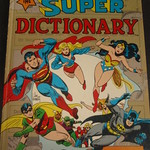 In the article 3 reasons that non-fiction authors should speak, I suggested why public speaking can be important to an author. But the question arises: should that be at any price?
In the article 3 reasons that non-fiction authors should speak, I suggested why public speaking can be important to an author. But the question arises: should that be at any price?
My natural inclination, my default position if you will, is that if you’re good enough to be asked to give a talk, do a presentation or run a workshop, then you deserve to be paid for it. As my wife so succinctly put it to me: “Nothing doesn’t buy anything.”.
However, situations, like people, are different from one another. At the end of the day, if you are asked to give a talk without payment, your decision of whether or not to accept is one that involves weighing up the (perceived) costs and benefits. Here are the considerations you might wish to take into account.















